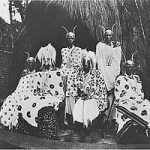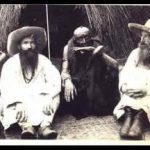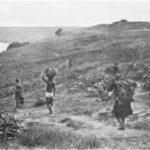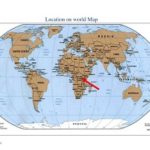Neighborhoods, Mutual Help, And Reciprocity
Reviewing the distribution of lineages, the following information was obtained:
(1)Hutu abavandimwelive usually near each other. They are brother-neighbors (abahana).
(2)Hutu isolates live near strong Hutu lineages and are treated as if they were part of the lineage, but with fewer privileges, or they associate themselves with the nuclear feudal cluster.
(3)The Tutsi lineages are always grouped as nuclear feudal clusters. This holds true even of the Tutsi of local origin who have a shallow lineage on the Hill.
However, in addition to this idealized distribution, the various households are also, grouped into neighborhoods made up often of people who have no official status vis-à-vis each other, other than that of being neighbors (abaturanye). These neighborhoods cut across the boundaries of various imirenge (geographical subdivisions of the Hill), and even across the boundaries of Remera itself, so that near its borders, neighborhoods include households from the contiguous Hills.
It is important to note that in these rapidly changing times the importance of the lineage and nuclear feudal clusters is being supplanted by that of the neighborhood groups. In exploring this phenomenon, the question was asked by the investigator: Given an urgent request for help from a brother who lives far away and a close neighbor who is not your relative, ail other circumstances being the same, which one would you rather help? The general response was very interesting and showed that the question had posed a very real problem. If the question were asked of a group, a discussion would inevitably follow. The consensus seems to be, at least among the younger and middle-aged men, that the neighbor should be helped, because, after all, he is more of a “brother” to one than the brother. Among the older men, the tendency to help the relative first is predominant, although one old informant made a fine distinction: he said that the neighbor should be helped first, but not in the same measure as the relative who should be helped more. Yet, along with these attitudes and in spite of them, the general feeling persists among all that one could always rely on a brother.
The people of Remera divide help among neighbors into different kinds. Each kind has its value, perhaps a bit in the same way that certain exchangeable things have a fixed value at the market. Some things, like exchanging seeds, “borrowing” beans, bunches of bananas or a bit of salt, or, again, wives helping each other in weeding their respective husband’s fields, or lending of a child to an old neighbor, do not demand any specific reciprocation. However, tilling each other’s fields is something on another plane. It somehow becomes a household and sometimes nearly a lineage affair, and requires that the working party be thanked with a distribution of banana beer following the work. Just reciprocating with similar work is not sufficient; beer has to be served. The gesture is the sign that one is willing to cooperate. The building of a house is included in the same class of assistance.
These two categories of help are further distinguished by the personnel participating in each of them. The former involves only close neighbors, particularly wives, and is very domestic in nature. The latter includes groups of various kinds, which may reflect the past allegiances of the members. A survey of mutual help groups shows that the stronger in number the lineage, the closer is the cooperation of its members, and the larger is its mutual help group, because allies of the lineage augment it.
Other large mutual help groups on the summit are heterogeneous in character and include individuals that are not necessarily close neighbors. These are composed of mixed Hutu and Tutsi who seem to be more closely allied to the nuclear feudal cluster.
Thirdly, there are isolated, small mutual help groups, situated particularly in the lowlands, which are composed predominantly of immediate neighbors, related or not.
One must keep in mind, however, that these mutual help groups are not rigidly constituted. One man may be part of several of the groups, each founded upon a different principle and therefore composed of different people.
One obvious reason for this is that the composition of each mutual help group is a reflection of the complex relationships found in the society. Another reason may be that the neighborhoods themselves are not sharply delimited. If each rugo is thought of as the center of a roughly circular neighborhood, it is easy to understand that the neighborhood will be different for each rugo and will overlap several other circles.
Still another reason for the varied composition within the mutual help groups is the actual obligations the members have towards relatives. If a man’s mother’s brother’s son lives on the other side of Remera and is building a house, the man usually goes over to help.
The neighborhood, as a unit, takes charge of a man who is a recent-arrival on the Hill. His new neighbors lodge him until his house is built. (These new neighbors are most often of a clan whose members are abase, i.e., “father-people”, to the members of the recent-arrival’s clan.) The men of the neighborhood give him five or six banana suckers each to start a banana plantation, and the women give his wife bean seeds and sweet potato runners.
On occasion, the neighborhood takes over other functions from the lineage. For instance, among the isolates it is customary for them to join a “lineage” council composed of those relatives who are available and the old men of the neighborhood in which they live. The obligatory visits which have to be rendered by the abavandimwe upon certain occasions, such as a death or a birth, are often made by the close neighbors who are, in fact, usually the first to render them because of their proximity.
https://uk.amateka.net/neighborhoods-mutual-help-and-reciprocity/https://uk.amateka.net/wp-content/uploads/2021/04/umuganda.jpghttps://uk.amateka.net/wp-content/uploads/2021/04/umuganda-150x150.jpgModel CitizenshipReviewing the distribution of lineages, the following information was obtained: (1)Hutu abavandimwelive usually near each other. They are brother-neighbors (abahana). (2)Hutu isolates live near strong Hutu lineages and are treated as if they were part of the lineage, but with fewer privileges, or they associate themselves with the nuclear feudal cluster. (3)The...BarataBarata rpierre@ikaze.netAdministratorAMATEKA | HISTORY OF RWANDA




